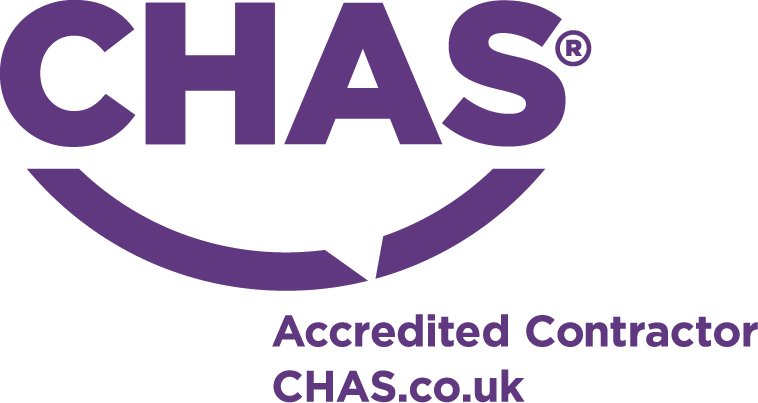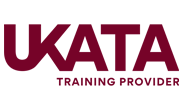How Online Asbestos Training Can Save Time and Money for Businesses
In today's fast-paced business world, efficiency and cost-effectiveness are paramount, particularly in employee training. Traditional training methods can be both time-consuming and costly. For organisations seeking to meet their health and safety obligations, online asbestos awareness training stands out as an advantageous solution. In this article, we delve into how online training can save time and money for your business while ensuring the highest standards of asbestos safety.
Flexibility in Scheduling
One of the main challenges with traditional training sessions is coordinating schedules. On-site training demands all employees to be available at a specific time and location, often disrupting regular work. In contrast, online asbestos awareness training allows for a flexible completion of courses, enabling employees to seamlessly blend learning into their daily activities.
Reduction in Operational Costs
Online training significantly reduces various expenses, such as fees for trainers, venue rentals, and material printing. With our online asbestos courses, these overheads are nearly eliminated, offering digital access to all study materials and assessments, thus cutting costs further.
Consistency in Training Quality
Uniformity in training quality is crucial for adhering to health and safety regulations. Our online asbestos awareness training ensures every participant receives the same high-quality resources, a consistency that can be challenging to achieve with varying on-site training methods and expertise.
Easy Updates and Compliance Tracking
Asbestos management laws and best practices are constantly evolving. Online courses are readily updated to reflect these changes, ensuring your staff are trained according to the most current guidelines. Additionally, digital records simplify compliance tracking, making audits and inspections more efficient.
Customised Learning Paths
Online training platforms often allow for the customisation of learning paths to suit individual or organisational needs. Tailoring modules to your industry makes the training process more relevant and efficient.
Why Choose Our Online Asbestos Awareness Training?
Our courses, designed by leading asbestos specialists, comply with all UK regulations, including the Control of Asbestos Regulations 2012. They feature interactive modules and realistic scenarios, providing a comprehensive and user-friendly learning experience.
The training is self-paced, enabling employees to complete modules at their convenience. Our advanced Learning Management System makes tracking progress and compliance straightforward. Opting for our online asbestos awareness training is a practical, efficient choice for any business committed to asbestos safety and awareness.
Read more
UKasl are now members of The British Safety Council!
Today marks a significant milestone for the Asbestos Specialists! We are thrilled to announce our membership with The British Safety Council.
The Vision of The British Safety Council:
The British Safety Council is committed to ensuring that nobody is injured or made ill at work. Their mission is to help employers achieve the highest Health and Safety standards as required by law, thereby protecting both staff and the business's bottom line.
Their approach involves offering the right courses to those in need, leveraging insights from a global network of Health and Safety professionals. The British Safety Council is dedicated to campaigning and influencing for better Health and Safety, motivated by the well-being of people, not financial profit.
Comment from UK Asbestos Specialists Managing Director, Les Cooper, on joining the British Safety Council:
"With my over 20 years of experience in occupational health & safety across various sectors, I have always valued the exceptional work of The British Safety Council in promoting safe working environments. Our membership is a declaration of our ongoing commitment to continuous improvement, a journey we started in late 2010."
A statement of dedication...
"This membership not only signifies our commitment to advancing health & safety in our workplaces but also provides us with a vast resource of information and support in all areas of occupational health & safety."
At UKASL, we are dedicated to offering high-quality asbestos awareness training and expertise. Our courses are approved and accredited by IATP, RoSPA, ASPS, and as UKATA training providers, we maintain the highest standards of training and information, vital for managing asbestos safely and effectively.
To learn more about our courses and how we can help you manage asbestos, visit our course pages:
-
Online Asbestos Awareness Courses
-
Onsite Asbestos Awareness Courses
-
Duty to Manage Asbestos Training
-
UKATA & IATP Non-Licensed Asbestos Removal Course
Our partnership with the British Safety Council further strengthens our commitment to providing top-tier training and support, ensuring the highest standards of health and safety in workplaces dealing with asbestos.
Read more
Asbestos kills 47,000 Europeans a year, report finds
Up to 47,000 people are dying each year across Europe because of asbestos-related cancer, according to a new report published by the European Trade Union Institute (ETUI).
The comprehensive report by Dr. Jukka Takala, President of the International Commission on Occupational Health (ICOH) and former Director of the European Agency for Safety and Health at Work, sheds light on the underestimated impact of asbestos-related mortality, particularly focusing on lung cancer cases caused by asbestos exposure.
Dr. Takala's research reveals a staggering statistic: annually, 46,919 deaths in the European Union (EU) can be attributed to lung cancer and mesothelioma due to asbestos, with the UK accounting for 15,180 of these deaths. The report, titled 'Eliminating occupational cancer in Europe and globally', highlights that occupational cancer remains the leading cause of workplace deaths in high-income countries, contributing to approximately 5.3-8.4% of all cancer cases globally. Despite its high mortality rate, occupational cancer, driven by factors like increased life expectancy and reductions in other work-related fatalities, is on the rise. However, the report emphasizes that occupational cancers are among the most preventable, primarily by reducing or eliminating exposure to carcinogens.
Dr. Takala advocates for an international initiative to eradicate work-related cancer, inspired by the World Health Organization's successful campaign against smallpox. He urges the EU to spearhead this movement and calls for comprehensive implementation of the REACH (Registration, Evaluation, Authorisation, and Restriction of Chemicals) programme throughout Europe. Additionally, he recommends establishing binding occupational exposure limits and ensuring their enforcement across the continent.
Laurie Kazan-Allen, the coordinator of the International Ban Asbestos Secretariat, responds to the report with urgency, underscoring the continuous efforts of civil society groups to prompt the European Commission and the European Union to address the asbestos hazard decisively and cohesively. Despite previous inaction, the new data should compel the authorities to fulfil their commitment to form a European Asbestos Taskforce as an immediate priority, Kazan-Allen asserts.
In response to these alarming findings, UKASL offers a variety of asbestos awareness training courses, accredited by IATP and RoSPA and endorsed by the Asbestos Safety Passport Scheme (ASPS) and UKATA. These courses, available both online and onsite, are designed to educate and empower individuals, particularly those responsible for managing asbestos in non-domestic premises. UKASL's 'Duty to Manage Asbestos (Appointed Person)' course, and 'UKATA & IATP Non Licensed Asbestos Removal Course' are tailored to equip duty holders with the necessary skills and knowledge to handle asbestos safely and comply with occupational safety standards.
For more information on our training courses and to join our mission in combating asbestos-related hazards, please visit our course pages: Online Asbestos Awareness Courses, Onsite Asbestos Awareness Courses, Duty to Manage Asbestos Training, and UKATA & IATP Non-Licensed Asbestos Removal Course. At UKASL, we are dedicated to providing comprehensive training to safeguard individuals and communities from the risks of asbestos, contributing to a healthier and safer workplace environment across Europe.
Read more
75 percent of schools in England and Wales contain asbestos
Did you know that a recent parliamentary report has estimated that three out of every four schools in England and Wales contain asbestos?
Despite significant investment by Governments in rebuilding and improving school environments within the United Kingdom, the presence of asbestos remains a critical concern for many local authority and private educational institutions across the nation.
The issue of asbestos in schools has been a persistent problem, escalating since the 1950s through the 1980s when its use surged uncontrollably. Even today, it remains a matter that demands immediate and serious attention. Alarmingly, in addition to this startling fact, the House of Commons education committee has reported that up to 300 former pupils die annually from exposure to asbestos.
As a response, various organisations, including the National Union of Teachers (NUT), have urgently called for the complete removal of all asbestos-containing materials from educational facilities at the earliest. The comprehensive report, 'Asbestos in Schools', provides an in-depth background to this issue, revealing that:
"Fourteen thousand schools were built after the Second World War and almost all those constructed before 1975 contain asbestos. Most other schools refurbished during this period also contain asbestos."
The report further highlights the materials that pose the greatest concern regarding asbestos, such as the lagging on pipes and in boiler rooms, and areas where asbestos has been sprayed, like on ceilings and around structural beams.
It's a well-known fact that the UK has the world's highest incidence of Mesothelioma, more than double that of France, Germany, or the USA. This is attributed to the volume and types of asbestos imported into Britain, although all forms of asbestos can lead to Mesothelioma, as concluded by an HSE report.
To address this grave situation, the report advocates for a phased removal of all asbestos-containing materials from schools. Individuals at risk from asbestos exposure include Caretakers/Janitors, refurbishment workers, and even parents who undertake ad hoc repairs and odd jobs in and around school properties.
At UKASL, we recognise the gravity of this situation and offer a comprehensive suite of courses tailored to address the issue of asbestos in schools. Our range includes specialised courses like The Management of Asbestos and basic asbestos awareness courses. Importantly, all our courses are fully compliant and approved by recognised associations such as UKATA, IATP, RoSPA, and are ASPS accredited. These courses, available both online and onsite, cater to the needs of duty holders responsible for protecting those who work in or use non-domestic premises. Our bespoke courses, such as the 'Duty to Manage Asbestos (Appointed Person)' and the 'UKATA & IATP Non-Licensed Asbestos Removal Course', are specifically designed to equip individuals with the necessary knowledge and skills to handle asbestos safely and effectively.
For more information on how to manage this critical issue in educational settings and to enrol in our training courses, visit our websites: Online Asbestos Awareness Courses, Onsite Asbestos Awareness Courses, Duty to Manage Asbestos Training, and UKATA & IATP Non-Licensed Asbestos Removal Course. Our commitment at UKASL is to ensure the utmost safety and awareness regarding asbestos, especially in environments where our future generations learn and grow.
Read more
Top 5 Myths About Asbestos Debunked
Asbestos is a topic laden with myths and misconceptions, often perpetuating a dangerous ignorance about its risks. Debunking these myths is crucial for informed decision-making, especially in fields requiring regular interaction with asbestos-containing materials (ACMs).
Myth 1: Asbestos Is Banned, So It's No Longer a Problem
While it's true that the UK banned the use of asbestos in 1999, many older buildings still contain it. Until these structures undergo complete asbestos abatement, the threat remains.
Myth 2: All Asbestos Is Dangerous
Asbestos is hazardous when its fibres are airborne. Intact, well-maintained ACMs generally do not pose immediate risks. However, disturbances during renovations or deteriorations can release fibres, making awareness training vital.
Myth 3: Masks Offer Complete Protection
Ordinary dust masks offer little to no protection against asbestos fibres. Specialised respirators and protective gear are necessary, knowledge of which is imparted in quality training courses like our
Online Asbestos Awareness Training.
Myth 4: It’s Easy to Identify Asbestos
Asbestos can't be identified by visual inspection alone. Professional testing is the only reliable method, reinforcing the need for proper training to manage potential risks.
Myth 5: A Little Exposure Won’t Hurt
Asbestos exposure has a cumulative effect. Even minor, repeated exposures can lead to severe respiratory conditions over time. It's crucial not to underestimate the risks involved.
Empower Yourself with Knowledge
Understanding the realities of asbestos is the first step towards effective management and safety. As property managers, or indeed anyone likely to come into contact with ACMs, you owe it to yourself and others to be as informed as possible. Our
Online Asbestos Awareness Training is designed to debunk myths and equip you with the practical knowledge required to navigate the complexities of
asbestos management safely.
In conclusion, asbestos awareness training is not a checkbox to tick off but a vital investment in safety and compliance. Whether you are battling myths or upholding your legal responsibilities as a property manager, our online training serves as a comprehensive solution to your asbestos-related concerns. With flexible learning schedules and up-to-date information, there has never been a better time to invest in your safety and peace of mind.
The Importance of Asbestos Awareness Training in the Construction Industry
In today's competitive and fast-paced construction landscape, safety should never be compromised. One crucial aspect often overlooked is
asbestos awareness training. While asbestos use has significantly declined due to its health risks, it remains a present danger in older buildings and construction materials. This makes asbestos awareness not just beneficial but indispensable for anyone involved in the construction industry.
What Is Asbestos?
Asbestos is a naturally occurring mineral used for its strength and fire-resistant properties. However, when its fibres become airborne and are inhaled, they can lead to severe health problems such as lung cancer, mesothelioma, and asbestosis. This makes it imperative for construction workers to understand the
hazards associated with asbestos and how to deal with them safely.
Regulatory Compliance
In the UK, the Control of Asbestos Regulations 2012 stipulates that employers must provide adequate training to workers who are likely to be exposed to asbestos. Non-compliance can result in hefty fines or even legal repercussions, making
asbestos awareness training not just an ethical but also a legal requirement.
The Role of Online Asbestos Awareness Training
While traditional training programmes are still prevalent, online asbestos awareness training courses are increasingly becoming the norm. They offer flexibility, allowing participants to complete the course at their convenience. This is particularly beneficial for construction firms operating on tight schedules.
UKASL’s online asbestos awareness training modules are designed to impart comprehensive knowledge tailored to the unique needs of construction professionals. By investing in our training, you not only ensure compliance with legal standards but also equip your workforce with the skills needed to identify and manage asbestos-related risks effectively.
Skill Building and Practical Benefits
A well-rounded
asbestos awareness training programme focuses on:
- Identifying different types of asbestos and their uses
- Understanding the health risks associated with asbestos exposure
- Recognising asbestos-containing materials (ACMs) in the workplace
- Implementing safe work practices to minimise risk
These skills not only protect your employees but also safeguard your business from potential liabilities. UKASL provides comprehensive accredited and approved online and
onsite asbestos awareness training throughout the UK and our mobile internet technology will allow you or your employees to access the court at home, office or even on the move using 5G and wifi technology.
Online Training - Some FAQs Answered
Q. Does the e-Learning asbestos awareness course comply with Law and satisfy my client or employer?
A. Your legal requirements are laid down in Regulation 10 of the Control of Asbestos Regulations 2012 which place a duty on employers to provide information, instruction and training on asbestos. The Approved Code of Practice L143 details the various types of training required and paragraphs 126 and 127 detail the specific requirements for asbestos awareness training and states that it should cover topics in appropriate detail, by means of both written and oral presentation, and by demonstration as necessary.
The Asbestos Specialists e-Learning asbestos awareness course does indeed meet the need of Approved Code of Practice L143, as it contains written (presentation) content, the same content as we provide on an in-house face-to-face training courses. The content follows the recommended syllabus as laid down within the ACoPL143. We also include comprehensive oral instructional and presentational narrated voice-overs that are consistent and can be replayed as often as the learner requires and of course we supply visual demonstration in the form of videos, photographs and interactive user friendly learning. The course specifically designed to comply with these legal requirements by competent industry experts with many years experience in all aspects of asbestos training. We also ensured that the e-learning format was also designed and constructed by experts within the ‘virtual learning’ sector.
Q. Do I need to be a ‘computer expert’ to do the course?
A. Definitely not! The course was designed with simplicity in mind. We understand that even today some people find the internet and using computers a little daunting so we designed the programme to be user friendly and simple to navigate. The course is compatible with Windows and all other computer systems and formats. You can use either a laptop or desktop PC to complete the training, and the only additional equipment would be a set of speakers, (although most computers will have built in speakers) which will be suitable for the audio content of the training course. The course is also compatible with most modern smart phones and tablets.
Q. How long does the course take to complete?
A. It is entirely up to you! Once you’re on the course and you are comfortable with the navigation etc, you can spend as long as you want! However we recommend that you allocate approximately 60-90 minutes to comfortably complete the course.
Q. Is there test for me to complete?
A. It is extremely good e-learning practice to include an ‘assessment’ or ‘test’ on any e-learning training course. You will be asked questions after each section that you complete as you go through the course. You will also need to complete an end of course assessment that comprises of 15 multiple choice questions.
Q. Can I fail the course?
A. You can fail, but it is unlikely, and even if you do we will give you a total of 2 attempts to pass. In the unlikely event that you fail both attempts, we will offer you an alternative way of gaining an asbestos awareness certificate.
Q. How soon can I get my certificate?
A. When you successfully complete the course, your certification is sent through to the email address that you entered whilst registering. If you don’t think that you have received this email, be sure to check your junk/spam files before getting in touch.
And Finally…
Its now up to you.
Just remember: no matter what type of training you as an employer or self employed person may undertake, you are legally required to ensure that the course that you do obtain fulfills your duties laid down in requirements of the relevant legislation. You must ensure that the course is designed and provided by competent and independently audited training providers.
Standards have to be met; we believe that The Asbestos Specialists meets those standards. We have invested heavily in training materials and systems to ensure that we help you to meet all of your legal requirements.
Our e-Learning asbestos awareness training course meets legal requirements for content and consistency, many do not!. So be aware that if you obtain and use an asbestos awareness e-Learning course YOU must ensure that it meets the standards - where it does not, the threat of enforcement could be waiting. As a company striving to be the best, in 2011, we came up with our tag line: ”...It is better to fail in originality than to succeed in imitation...” and we stand by it!
Read more
Are you ready for CDM Regulations 2015?
Just recently implemented and still going through a transitional time scale to allow compliance, we thought it would be a good idea to let our extensive list of corporate clients know about the main changes to the Construction Design &
Management Regulations (CDM).
1.
The Regulations have created a new position/role called the “Principal Designer’. The role of principal designer doesn’t have to be an individual; it can also be an organisation. To fulfil the role of the Principal Designer, the person or the organisation must be a designer on the project and be in a position to have control and influence over the design. The Principal Designer will have the authority to influence the management of health and safety on the CDM project.
It is anticipated that the Principal Designer will be an existing member of the design team and will have responsibility for the pre-construction phase of the project.
2.
With these new Regulations the role of the CDM Co-ordinator is to be removed. The ‘old role’ of the CDM Co-ordinator will be split between the Principal Designer, the client and the Principal Contractor.
3.
An important note to make is that under CDM 2015 the client is given more responsibility. These additional responsibilities/duties are intended to reflect their ability to set standards for a project and to increase their influence on the health and safety aspects throughout the life of a CDM project.
4.
Without many of the older exemptions its important to know that all of CDM 2015 will apply to projects, this is whether or not they are notifiable.
5.
Under the new CDM 2015 Regulations the notification requirements have been revised. Now its important that you know that the project needs to be notified to the HSE where it is scheduled to last more than 30 working days and have more than 20 workers on site at the same time (this is at any point in the project), or where it exceeds 500 person days. This change will mean that fewer projects will require the project notification. With regards to the notification it is now the client’s duty to ensure that this happens, if appropriate. The application of the notification will no longer give rise to any additional duties.
6.
In the previous CDM Regulations of 2007, only notifiable projects will have required a CDM co-ordinator, now however under the new CDM 2015 Regulations a principal designer MUST be appointed whenever there is more than one contractor working on a project.
7.
The previous duty laid down within CDM Regulations 2007, which applied to those appointing Duty-holders to ensure their competence is now amended. The requirement in CDM Regulations 2015 is now to ensure that they have the necessary skills, knowledge, experience and (where appropriate) organisational capability to fulfil the role that they are being appointed to.
8.
CDM 2015 will apply to all clients i.e. anyone for whom a construction project is carried out and so domestic clients will now also have duties under the Regulations (although those duties will differ from the duties on commercial clients). Domestic clients will be able to delegate their duties to a contractor or the principal designer.
Our Management of asbestos training courses will of course reflect these changes, we will also include these changes in our Management refresher courses, and our industry leading Duty to Manage Asbestos courses which are available online or at venues across the UK. If you need more information, just give our professional training advice team a call!
Companies and individuals should join Trade Associations because…
Trade Associations sit at the heart of their industry and offer many benefits to members. These benefits include money saving activities such as free advice on many issues, access to special rates through affinity services and regulatory cost avoidance, which can often cost a significant sum of money on the open market.
Associations are seen as the voice of their sector and able to represent all their members at every level. Associations therefore provide government and other authorities with the peace of mind that they are getting a fully considered view of what is good for the sector. This is an extremely powerful asset for members and as the membership base grows so does the Trade Association’s authority.
Associations are trusted and central to their industry. This means they can uniquely offer a wide range of information and services nobody else can easily provide in a range of communications methods.
This can include collation of sensitive information to provide an industry wide statistical report service, or the management of a consumer code of conduct. Associations are often in a position to offer specialist advice, particularly of a technical or legal and commercial nature, which are not necessarily readily available to small and medium sized organisations.
Some will also offer a consultancy service or an expert witness service on behalf of members if necessary. Associations often undertake specific projects, which benefit members or the industry as a whole.
Members would have an excellent opportunity to become involved first hand and influence the outcome of these projects should they choose to. Associations facilitate the opportunity for members to network with their peers at conferences, Exhibitions and other events whilst they are learning about issues which may affect their business.
Associations provide immediate updates regarding changes in industry technical standards, policy and news which are disseminated to members and provide an early warning system with advice on how to deal with the issues which may be encountered as a result.
Associations often offer commercial benefits through negotiated deals with approved suppliers. Some Trade Associations negotiate excellent deals with suppliers for products, which their members may wish to utilise. Typically these may include preferential rates for insurance, road recovery for fleet vehicles, health and safety and employment law services. Enhancement of a company’s reputation often follows joining a Trade Association. For many industries, membership of the industry association is seen as a badge of quality, particularly for those industries which are heavily regulated such as the asbestos awareness and asbestos removal industries.
UKasl are now fully audited by IATP for Non Licensed Removal and On-line Asbestos Awareness. Please see page 4: http://www.iatp.org.uk/location-results/
Read more
The role of trade associations in maintaining standards.
A ‘trade association’, also known as an ‘industry trade group’, ‘business association’ or ‘sector association’, is an organisation founded and funded by businesses that operate in a specific industry sector.
As far back as 2007 The Asbestos Specialists were involved in the first attempt by training providers, in conjunction with the Health & Safety Executive to raise standards in the asbestos training industry with founder member status of The Asbestos Training Providers Working Group (ATPWG). This working group established a code of conduct which training providers committed to prove competence and improve the standards of training offered.
The Asbestos Specialists were one of the founder members of the two main trade associations, (IATP and UKATA) which promote high level of standards to their members by way of stringent entry requirements. These trade associations liaise with the Health & Safety Executive (HSE) on a regular basis, keeping up to date with legislation and guidance changes.
Although close contact between these two trade associations (UKATA & IATP) and the HSE is maintained, neither association is ‘favoured’ or endorsed by them. Trade associations are not government bodies, nor are they to act as enforcement; they promote through the membership a higher level training standards to benefit those who undergo the training from the members of that respective trade association.
There are NO current legal requirements or PLANNED legal requirements for asbestos training providers to be a member of ANY trade association such as UKATA or IATP to be able to offer or carry out asbestos training courses. We as a training provider are members of both of these associations, we are audited by these organisations and these audits will show that we are a ‘competent’ training provider in the delivery and content of various courses we offer.
What does this mean to you?
Well simply put it means you can be assured that the courses we offer either by way of our online systems or face to face are of the highest standard giving you peace of mind and ensuring your employees get the training they need to keep them safe from the hazards of asbestos whilst working on site.
Take a look around our site, choose your course, give us a call, we are here to advise you and help you make the right choice!
Read more





